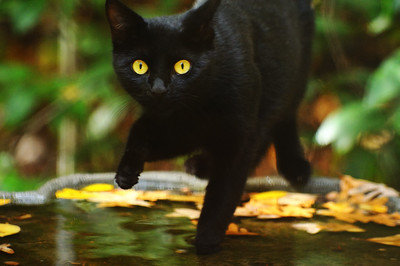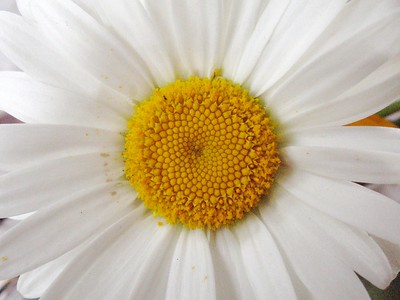
Here’s a mentor text, a modeled memoir originally written for a fifth grade class a few years ago. It’s a true story from my own fifth grade year. These long-ago events etched themselves on my young heart as they unfolded. Some of the minor details are fuzzy, but I remember the intensity of these moments. I see every classmate’s face; I recall every name, although I’ve opted to alter all but my own for a comfortable anonymity in the face of hard truths.
For it’s a hard slice of life.
Today I dust off that Valentine’s Day I’ve never forgotten, reinforce it with a bit of word-glitter and glue, and give it to you . . .
On a cold but sunny February afternoon, my fifth grade class gathers on the kickball field to choose teams. The two captains flip a nickel to decide who’ll go first; my friend Shannon wins. She and Davy stand side by side for a moment, scrutinizing the rest of us as if they are drill sergeants and the rest of us are boot camp recruits.
“Allen,” says Shannon. Allen is always the first pick because he’s a go-cart racer, competitive and very popular. He likes to win.
Allen jogs over to stand behind Shannon.
“Jon,” says Davy.
I think, That’s kind of surprising.
Jon came to our class late in the fall. He used to be the last pick for our teams, since he wears big, thick glasses and doesn’t seem very athletic. At first the boys called him Four-Eyes and the girls said he looked like a little old man because of the way he hunches his shoulders up to his neck most of the time, in addition to the bowl-style cut of his hair. We really don’t notice him that much any more, as Jon is so quiet. When Davy calls his name, Jon trots in his stooped-over way to stand behind him.
“Fran,” says Shannon, after a pause.
“YESSSS!” I whisper. I take my place behind Allen, who gives me a high five.
I love kickball. Next to jacks, it’s my favorite game to play with the class—these are really the only two games I’m any good at playing. Once when I slid into home plate I peeled up a whole strip of turf in my shoelaces, but I was safe!
The captains continue choosing players, until only one girl remains.
Eloise.
She, too, is new to our class, arriving just after Christmas break. Eloise is unusually tall, taller than Shannon, who’d been the tallest girl in the school until now. Eloise is as big as a grown woman. Her brown, frizzy hair puffs out from her head like a cloud. It flutters when she walks. One of her front teeth is chipped. Her eyes are the color of the summer sky, and at the moment, they’re a little teary.
Davy sighs: “All right. Eloise.”
Eloise scurries to the end of Davy’s line, looking at the ground.
During the game, Eloise tries with all her might to run and kick the ball, but she misses and loses her balance. When she falls, we can’t help laughing. Eloise, her face pink, gets up by herself and runs to the back of the line once more.
I don’t know what makes me keep my eyes on Eloise, and why I began wondering what it must be like to always be picked last, or to hear other kids whispering things like Neanderthal and Amazon, never when Mrs. Peterson might hear. I try to imagine how embarrassing it would be if I was too big to be comfortable in the classroom desks and if regular girls’ clothes wouldn’t fit me. I am already clumsy, which is why I’m not good at most sports. Except kickball.
What would I do if no one wanted to sit by me at lunch or went the long way around my desk, the way we do to Eloise?
Watching Eloise with her face turned toward the ground, I suddenly don’t feel like laughing anymore.
Back in class, after a stop at the water fountain, Mrs. Peterson passes out sheets of Manila paper.
“Today, Class, you will write the first letter of your name in cursive on the paper and turn it into an animal or a design that represents you.”
Mrs. Peterson’s first name is Felicia; she holds up her paper to show how she’s turned her cursive “F” into a giraffe.
Everyone gets to work. Except me. I am stumped for how to turn my own cursive “F” into anything artistic. I have trouble making a cursive “F” in the first place. Everyone says my “Fs” look like “Ts.”
I have no idea what to draw.
To waste time, I get up and sharpen my pencil. I pass right by Eloise’s desk, where she’s bent hard at work. On her paper, she’s written a large, elegant cursive “E,” the fanciest one I’ve ever seen.
She’s turning it into the open wing of a bird.
Before I know what I’m doing, I blurt: “Oh my gosh! That’s beautiful, Eloise!”
Mrs. Peterson comes to look. “It’s lovely. Why don’t you show the class?”
Eloise, looking alarmed, shakes her head. Her fuzzy brown hair bobs like ocean waves.
“May I show them?” asks Mrs. Peterson.
Eloise nods, turning pink again.
Mrs. Peterson holds the paper high. “Just look at what an amazing artist Eloise is, everyone.” She turns slowly so all can see, the way teachers do with pictures in books.
“Oooooo,” breathe my classmates.
Someone says “Wow.”
Eloise’s pink face glows. She smiles, revealing her chipped tooth; her sky-colored eyes sparkle.
I want to freeze this moment for Eloise, and for myself, to capture it for the wonderful and powerful thing it is, but it is quickly gone, and the next day at lunch when she knocks her milk carton over, we all laugh at Eloise again.
Even as we laugh, I feel bad inside.
What’s the matter with me? Why do I laugh when it doesn’t feel right?
After lunch, Mrs. Peterson gives a speech:
“Ladies and Gentlemen, as tomorrow is February fourteenth, you may bring Valentines to exchange. Listen carefully: If you bring Valentines, you will bring one for everybody in this class. Do you understand?”
Her dark eyes stare right through us.
“Yes ma’am!” we answer in unison.
We know why she makes this point.
Eloise knows, too, and keeps her eyes on her feet.
I’ve already got my box of Valentines and can’t wait to give them out. Inside my box there happens to be a bonus Valentine; I’ve never seen one like it before. It’s about five times larger than the other little cards. It has to be unfolded several times to show the gray, fluffy dog decorated with silver swirls all around. The dog holds a big red heart in its mouth, which reads You are special. This big Valentine is just too beautiful to give away. I am keeping it for myself.
The next day, Mrs. Peterson makes us wait until after lunch to distribute our Valentines. We have to open them together, all at one time.
“Hey, thanks for the candy!” Shannon tells Allen.
“Cool—gum!” says Davy, even though he has braces and isn’t supposed to chew it.
Just then, Eloise cries out. It’s a loud, terrifying sound.
Everyone turns to look at her.
Everything just freezes.
She’s sitting at her desk with her hands over her face, sobbing.
No, I think. Tell me someone hasn’t given her a mean Valentine. Or put something gross in her bag.
Then I recognize, from several desks away, that open Valentine on Eloise’s desk.
The fancy silver dog, the big red heart, the message. You are special.
“Who gave you that?” someone demands.
I walk over to read what’s written at the bottom of that most beautiful card:
Your friend, Jon.
Obviously, Jon’s mom shops at the same store where my mom shops, since we have the same box of cards.
Unlike me, however, Jon has chosen to give his best card away.
To Eloise.
She continues to wail, but we all look from her to Jon, who’s sitting slouched worse than usual at his desk. His face is a darker shade of red than Eloise’s has ever been. He won’t look at the rest of us.
“Oooooo!” says one of the girls.
A boy starts chanting: “Jon and Eloise, sittin’ in a tree . . . ”
But something new is happening here; the energy in the room is changing. This isn’t the regular boy-likes-girl situation. I feel it.
So does Allen.
“Hey, stop it, guys! Leave him alone!” Allen gets up to stand by Jon.
Mrs. Peterson is there, too. She places her hand on Jon’s shoulder, her wide brown eyes glimmering with tears. “You, young man, are a noble person.”
I don’t know exactly what “noble” means, but I know that Jon, all of ten years old, is the biggest hero I’ve ever seen. My emotions swirl inside me like the silver designs on the card—shock at Jon’s choice, guilt over not treating Eloise better, sadness that I hadn’t been the one to give so freely. I look at Jon, the boy new to us this year, who’d endured teasing, too, until he faded into the background in a way Eloise can’t, and I know I want to be like him. Today he isn’t in the background; today he’s the champion of us all. Today he taught us—or at least me—the power of kindness and selflessness, to forget yourself and help someone else.
Perhaps that’s what “noble” means.
I want to be as noble as Jon. I want to help Eloise. So after Mrs. Peterson calms her down, I go to sit beside her.
“You can make Valentines prettier than these, Eloise, the way that you draw.”
“Maybe.” She shrugs, her face splotchy.
“Don’t you live in my neighborhood?” I ask. “I think I’ve seen you walking that way after school.”
“Yeah. I know where you live. I’ve seen you playing in your yard with your sister.”
“We could walk together sometime. If you like,” I offer.
Eloise looks at me. She smiles. I think of the elegant E-bird she drew; I imagine it stretching its wings just now, preparing to fly high and far in the wide blue sky.
“Sure,” she said. “I’ll walk with you.”
So after school, that’s what we do. We walk together.
Home.
Photo: Broken Heart. David Goehring. CC BY







